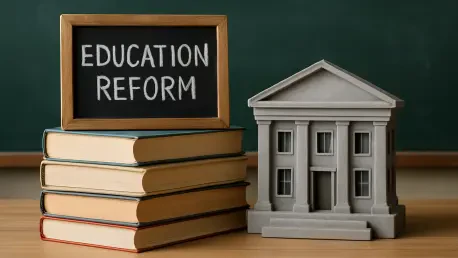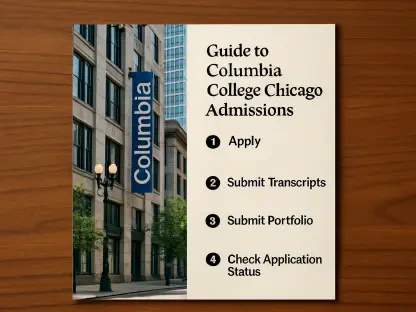In a state where public education struggles to meet even basic standards, a stark reality emerges: Oklahoma ranks dead last in national education outcomes, leaving countless students without the tools they need to succeed in an increasingly competitive world. This alarming statistic is not just a number but a reflection of systemic failures that have persisted for far too long, impacting generations of young minds. Senator Carri Hicks, a Democrat from Oklahoma City with deep roots in education, has stepped forward with a passionate plea for change. Drawing from her experience as an educator with a master’s degree in early childhood education, Hicks argues that the recent resignation of State Schools Superintendent Ryan Walters offers a critical opportunity to pivot away from political distractions and focus on what truly matters—Oklahoma’s children. Her call for reform is not merely a reaction to current challenges but a bold vision for a future where every student thrives through a well-supported system.
Addressing the Crisis in Oklahoma’s Schools
Systemic Failures and Their Impact
The challenges facing Oklahoma’s education system are both deep-rooted and multifaceted, creating barriers that hinder student achievement at every turn. Chronic underfunding has left schools grappling with outdated textbooks, limited access to technology, and crumbling infrastructure, while teacher shortages exacerbate the strain with larger class sizes and less individualized attention. Senator Hicks has pointed out that these issues are not isolated but interconnected, forming a vicious cycle that traps students in underperforming environments despite the tireless efforts of dedicated educators. The consequences are evident in dismal reading and math proficiency rates, which fail to prepare students for higher education or the modern workforce. Beyond academics, the lack of resources for mental health support and basic services like school nurses further compounds the problem, leaving many children without the holistic care they need to succeed. This dire situation demands immediate attention, as the potential of an entire generation hangs in the balance, waiting for systemic change to unlock their opportunities.
The Cost of Political Distractions
Beyond the tangible resource shortages, a less visible but equally damaging issue plagues Oklahoma’s schools: the intrusion of partisan agendas into education policy. Senator Hicks has emphasized that political battles have too often diverted focus from critical priorities, such as improving student outcomes and supporting teachers, toward divisive debates that do little to address classroom needs. This misplacement of energy has stalled progress on essential reforms, allowing the state to fall further behind national standards while other regions advance through strategic investments. The result is a fractured system where decisions are driven by ideology rather than evidence, undermining trust among educators, parents, and community leaders. Hicks argues that the recent leadership transition at the state level provides a rare chance to reset this dynamic, urging stakeholders to prioritize bipartisan cooperation over conflict. Without such a shift, the risk of continued decline looms large, threatening to deepen the educational disparities that already burden Oklahoma’s youth.
Building a Vision for Educational Transformation
Investing in Teachers and Resources
To turn the tide, Senator Hicks advocates for a robust reinvestment in the very foundation of education: teachers and classroom resources. Raising teacher pay to competitive levels is a cornerstone of her plan, as it would not only attract talented professionals but also retain experienced educators who often leave for better opportunities elsewhere. Alongside fair compensation, enhanced professional development programs are essential to equip teachers with the latest teaching strategies and technological skills needed in today’s classrooms. Hicks also calls for modernizing resources, from up-to-date textbooks to cutting-edge technology, ensuring students have access to tools that match the demands of a 21st-century economy. Furthermore, reducing class sizes through strategic hiring can foster more personalized learning environments, allowing educators to address individual student needs effectively. Such investments, though significant, are non-negotiable if Oklahoma aims to climb out of its current rankings and build a system where every child has the chance to excel through quality instruction.
Creating Holistic Support Systems
Equally critical to academic success is the establishment of comprehensive support systems that address students’ broader needs, a priority Hicks underscores with urgency. This means bolstering early childhood education to lay a strong foundation for lifelong learning, as well as expanding access to wraparound services like counseling and health care within schools. Many students face emotional, mental, and physical challenges that impede their ability to focus on studies, and without adequate support, these barriers can derail their futures. Hicks envisions a network of well-trained counselors and nurses in every district, alongside vibrant programs in arts, music, and CareerTech that inspire creativity and practical skills. Advanced coursework offerings would further prepare students for diverse career paths, encouraging them to remain in Oklahoma to contribute to the state’s growth. By weaving these elements into the educational fabric, the goal is to create safe, nurturing environments where students are not just taught but truly supported to reach their full potential.
A Unified Path Forward
Reflecting on the powerful arguments put forth by Senator Hicks, it becomes clear that Oklahoma stands at a crossroads in its educational journey. Her insights as both a legislator and educator illuminate the harsh realities of underfunding and political gridlock that have held the state back for years. Yet, her optimistic blueprint for reform—rooted in teacher support, modern resources, and holistic student care—offers a tangible path to progress. The consensus is that education must transcend partisan divides to become the bedrock of Oklahoma’s prosperity. Moving forward, the actionable step is to unite parents, educators, policymakers, and community leaders in a shared commitment to long-term investment and strategic planning. By focusing on bipartisan solutions and prioritizing student well-being over the next several years, Oklahoma could transform its schools into a national model of success. This collective effort, sparked by Hicks’ compelling call to action, holds the promise of a brighter future where every child’s potential is no longer stifled but celebrated and nurtured.









